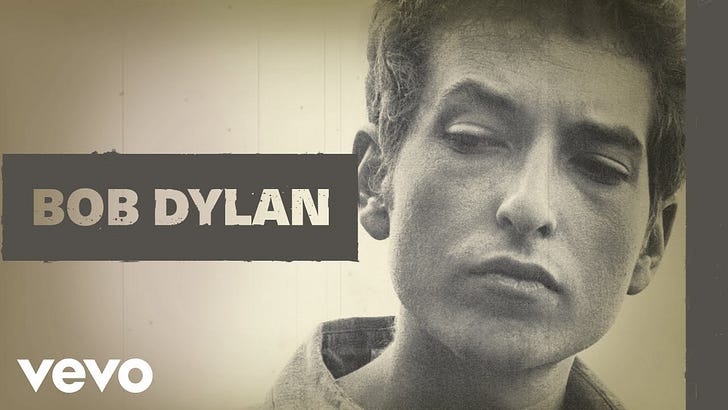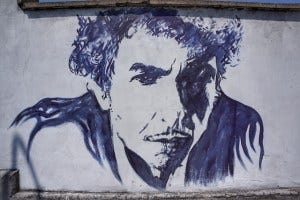Shakespeare on authenticity:
"This above all, to thine own self be true, and it must follow as the night the day, thou canst be false to any man."
"Truth is truth to the end of reckoning."
Mary Sarton, "We have to dare to be ourselves, however frightening or strange that may prove to be."
Carl Jung, "The privilege of a lifetime is to become who you truly are."
Charles Taylor’s "The Ethics of Authenticity" is considered a landmark examination of modernity’s characteristic drive to “be true to oneself” and its effects on personal and social ethics. While introducing the concept of the modern pursuit of authenticity, Taylor subtly develops it and contends that the quest has been transposed from preexisting concepts to a defining element of contemporary identity. The book provides valuable insights into the conflict between personal authenticity and social standards within an ethical framework.
Taylor is not opposed to the criticisms of “authenticity,” which are perceived as excessive narcissism and the decline of ethics and moral restrictions. He argues that responsive authenticity requires an understanding of oneself that simply cannot be done independently with genuine empathy and wisdom. It also includes an element of dialogue with others and the world of people.
The ethical task of authenticity, according to him, is in this encounter. The author distinguishes between a quest for uniqueness and the self-centered narcissism common in consumer culture. He proposed a model of authenticity that is more about self-improvement than self-indulgence and noted how self-improvement is linked to trusting an interconnected nature.
Taylor’s book is also devoted to analyzing the issue in political and legal ethics, describing the concept of personal and social self and democracy’s “psychoanalytic option,” or the notion of a political system as a value-signature community or community of tolerance.
Authenticity, a term that encompasses every aspect of life, from the individual to the collective life, from the human deed to the societal values, can be defined as the alignment between the self and the behavior, beliefs, and expressions in the absence of societal or external inclinations. This paper examines the concept of authenticity, its definitions, provenances, and current paradigms, using authentic examples to illustrate the concept’s manifestation and significance in the actual world.
Authenticity has its roots in ancient philosophy, the fundamental principles of which say man should know himself and conform to himself throughout life. The current understanding of authenticity includes knowledge of the self and the courage to be oneself, even against relatively new societal expectations, which may be traced to shifts in societal values, such as those in the 20th century.
In the various manifestations of human life, authenticity is sometimes synonymous with originality and sincerity, such as in art, music, and literature. For example, Van Gogh’s art is a manifestation of authenticity in the paintings. The artist was unique for the powerful emotions about life he reflected in his paintings through the colors he used and his distinct technique. Unlike his contemporary realists, he is more about expressing emotions than visual appearances, which eventually made him the influencer of expressionism.
Similarly, in music, authenticity is about an artist’s ability to write lyrics and songs that convey their feelings and thoughts. Some famous singer-songwriters, such as Billie Holiday, Joni Mitchell, and Bob Dylan, are real-life examples.
Authenticity has many implications beyond the arts. For instance, possessing many authentic leaders, such as Satya Nadella, the CEO of Microsoft, who has emerged as an icon for being genuine and transparent,. He has conquered the world by being honest, empathetic, and having consistent speech and actions. Since Nadella took over as CEO, Microsoft has made a strong comeback and now focuses on the importance of inclusivity, collaboration, and having a mindset that embraces growth in today's business landscape. It unquestionably promotes a greater level of trust and is extremely beneficial to developing loyalty.
Moreover, authenticity can apply to our everyday relationships, which are more crucial today than ever before. It should be prioritized in places where authenticity is at stake. A conversation with your friend is of immense significance, particularly on gloomy nights when both of you are vulnerable. Discussing your fears is crucial; others believe they are incapable of handling them. In this digital era, personal presence and genuine relationships with those whom you adore are very meaningful; they remind you it is okay to be yourself.
In many circumstances, embracing authenticity is difficult. You may feel pressure from your culture, your family, and even from yourself. However, it is liberating and empowering to challenge social strictures and just be who you are. For example, distinct LGBTQ+ people can “come out” and discuss their identification with theoretical hostility. This choice might alter the minds of individuals who have already formulated wild misconceptions.
Bob Dylan
Few figures in the world of music and songwriting wield such an influence over the cultural history of the 20th century and beyond as Bob Dylan. A Nobel laureate in literature, the trajectory of his career from the early 1960s as a folk singer marks one of the clearest examples of a pursuit of authenticity in one’s art, free of industrial constraints or societal expectations. His lyrics, widely viewed as some of the most brilliant in the history of folk and popular music, stand as a rare point of intersection between personal revelations and social commentary.
In a time when music was predominantly viewed as a commodity to cater to consumer tastes, Dylan instead produced music that would become the anthems of the civil rights movement, Vietnam War protesters, and a generation haunted by the specter of nuclear annihilation by the end of the decade. Unlike many of his peers, he did not choose to ignore such themes and instead addressed them head-on in songs such as “The Times They Are A-Changin,” which served as a statement of purpose for the aforementioned civil rights protesters.
It is in his refusal to succumb to being just another tool of a mass-consumer society that one sees Dylan’s authenticity. It was to be seen not only in his lyrics but also that he never accepted to remain within one musical genre.
Just as he began his career as a folk singer, the choice to “go electric” in the 1965 Newport Folk Festival with the support of a band was rebuffed almost immediately by traditionalists but vindicated by a critical and popular audience, which underscored his genuine growth as a musician. Throughout his career, he has moved back and forth between traditional folk, country, gospel, and interpretations of the Great American Songbook with ease.
Dylan, as an artist, cares about his artistry rather than giving in to outside expectations or demands. However, the most definitive evidence of Dylan’s authenticity is his ability to move and inspire people. His impact on music alone cannot be overstated; bands from The Beatles to Bruce Springsteen to Adele and numerous other musicians and genres have been inspired to start just by listening to his raw, honest lyrics.
He also inspired a lot of literature, cinema, and social movements. The idea that a simple songwriter who started his career with a battered guitar and a harmonica would one day be awarded the Nobel Prize in Literature seems wild. But that is exactly what occurred. The Nobel Committee awarded Bob Dylan the Nobel Prize for Literature in 2016, stating, “He has created new poetic expressions within the great American song tradition."
Dylan's unforgettable song, "The Times They Are A-Changin."
A quote from just endless numbers of listeners:
"It's both mind-blowing and borderline scary that a 23-year-old can write a masterpiece like this. It is truly one of the most (if not THE most) ageless & profound songs ever written." A Dylan fan.
Listen, The Times They Are A-Changin."
And, of course, Joni Mitchell
"Help Me."








Just be and read this.